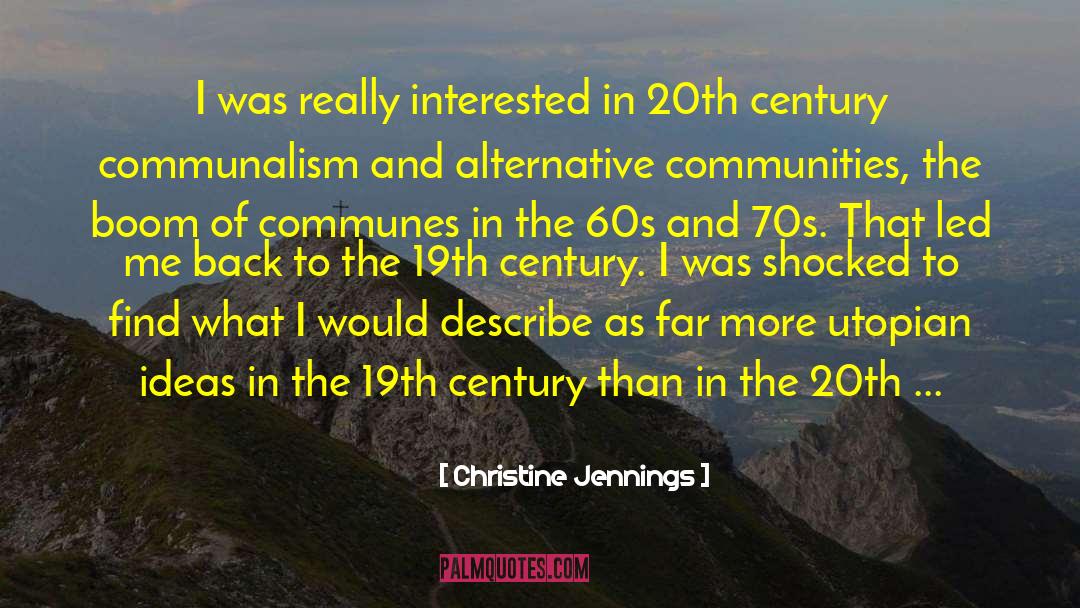Christine Jennings Famous Quotes
Reading Christine Jennings quotes, download and share images of famous quotes by Christine Jennings. Righ click to see or save pictures of Christine Jennings quotes that you can use as your wallpaper for free.
The biggest names in the Transcendentalist literary circle visited the community regularly, and supported it, but they couldn't live there happily. Hawthorne [who was briefly a resident] left for reasons I'm sure make sense to you; he couldn't get enough writing done in a house full of people playing music, and arguing. It was too busy.
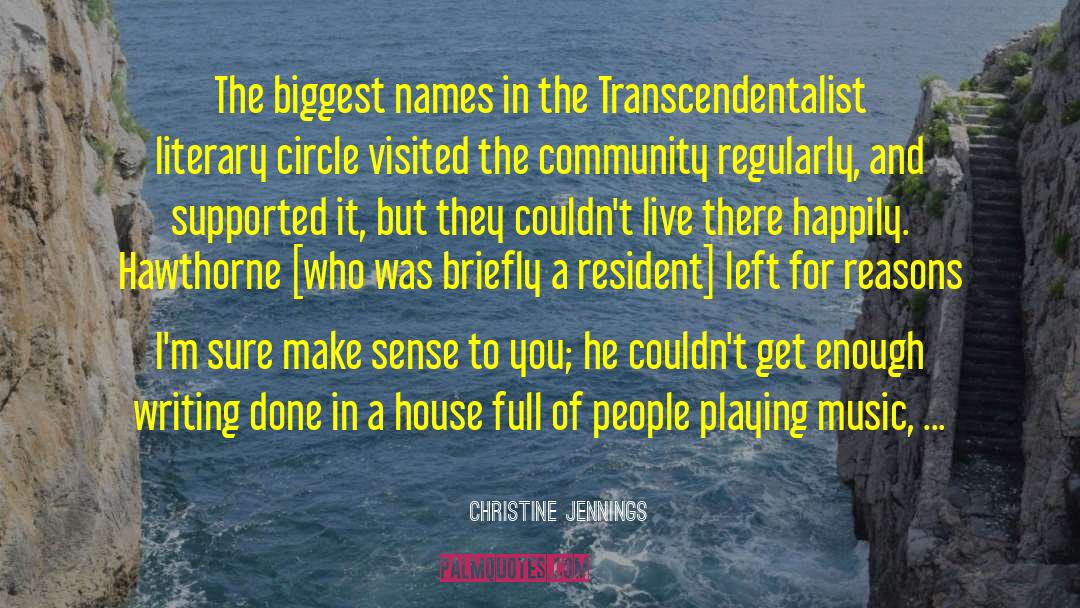
The fatal flaw of most utopian visions is that they're fundamentally static, and that's not a comfortable place for humans to live. Fourier was very good at imagining a utopia that is constantly changing and very busy, but a vision of paradise that would have been most tantalizing to an underfed overworked factory worker in 1840 doesn't have much appeal in fiction because it's not a story.
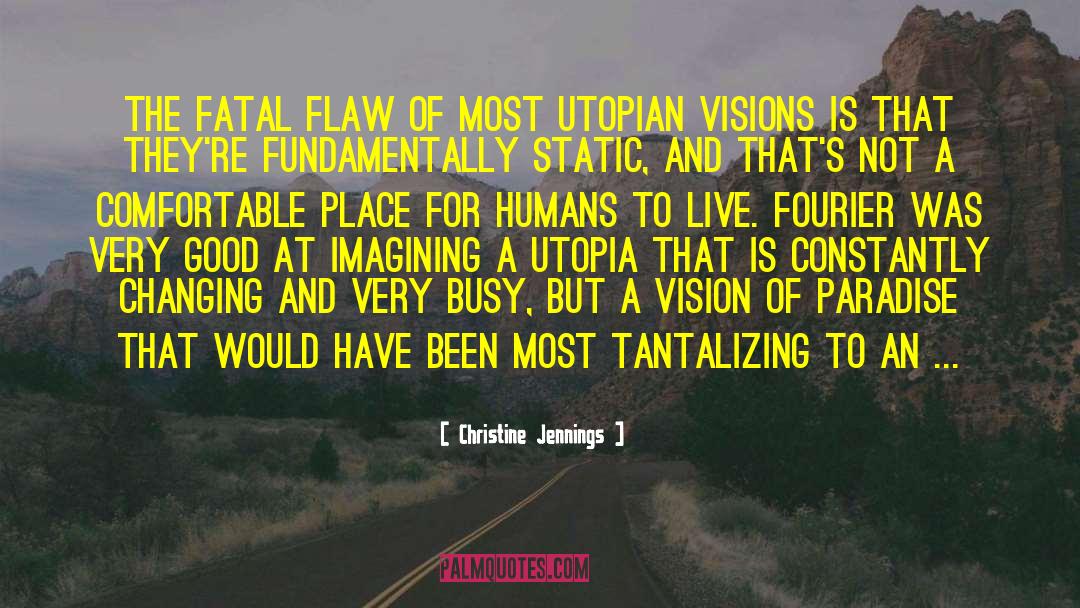
The thing that had fueled these utopian communities was a literal belief, and not just a general sense of optimism, that the earth was about to become a paradise. That idea cannot hold water after the war.
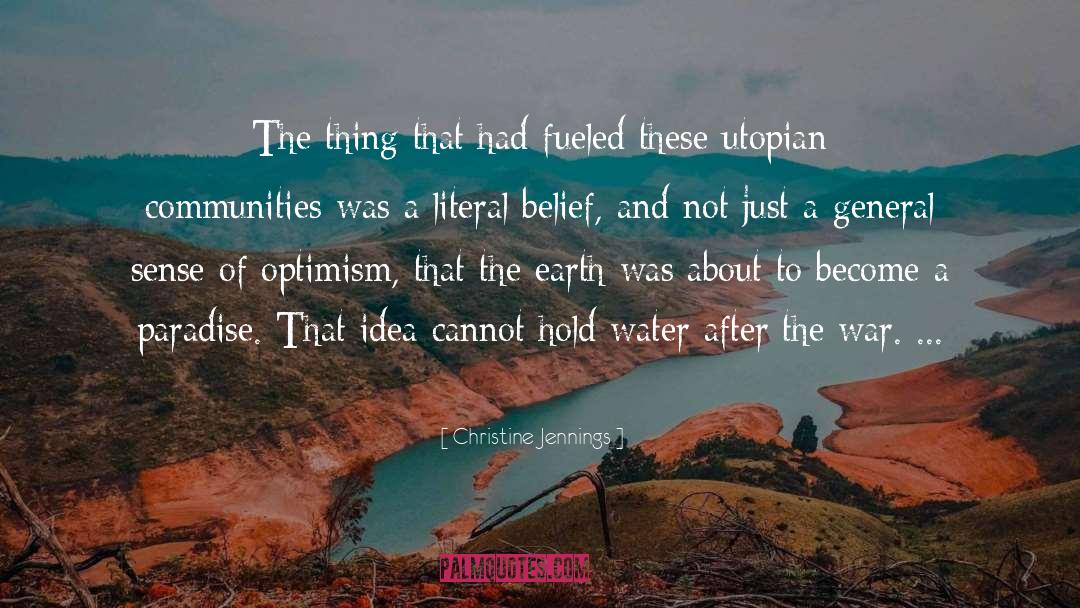
One of the things that's amazing about reading the private writing of these folks is that they enthusiastically describe things which we have now seen, and which are widely regarded as unappealing. They'll write, "It's going to be beautiful, we're going to have a town of 1,000 stone buildings that are all identical." And we as modern readers think, we've seen that; that's bad Soviet architecture or a public housing project. Nobody fantasizes about living there.
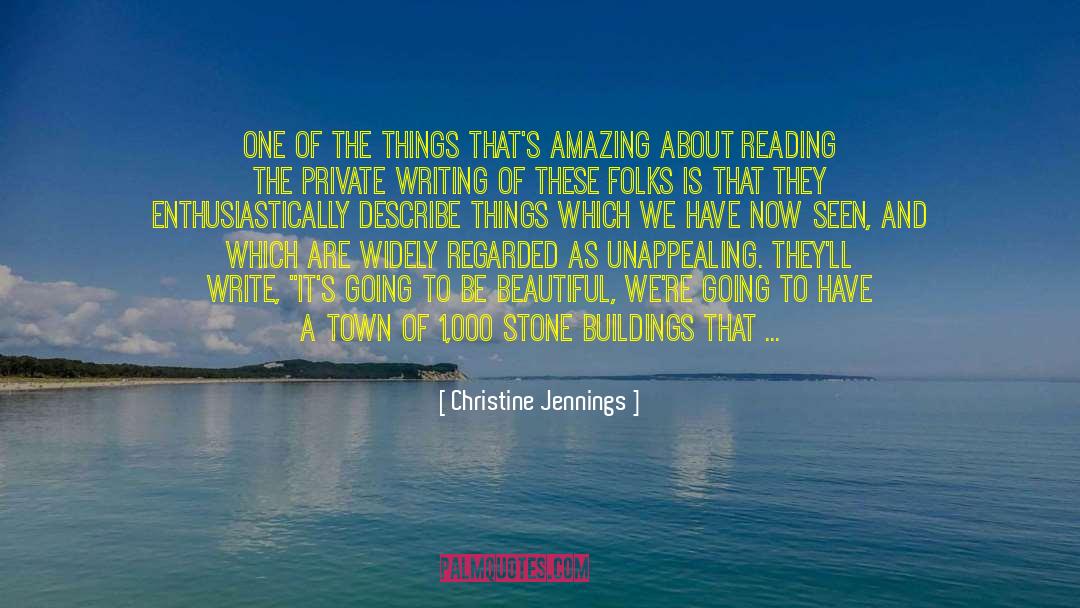
So there's that change of general consciousness, and then there's this boom after the war, this expansion into the West. It was like the 1950s. The American economy was pumping at top speed. The kinds of people who would move into these communities and organize their lives around a utopian dream now had dreams about the West.
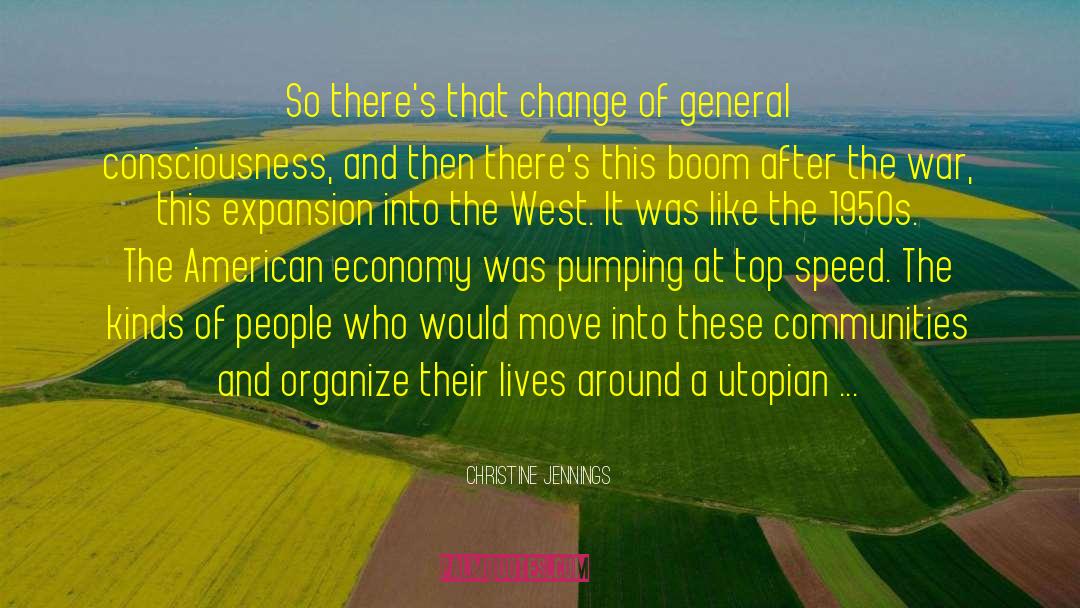
Because the utopian's worldview was framed around moving toward this perfected future, it helped stimulate the private exertions that add up to social progress. Progress is work. People need to build things and sacrifice and have a harder life for things to get better. On its own, I don't think even the most brilliant critique stimulates that kind of effort as well as an appealing vision of the future.
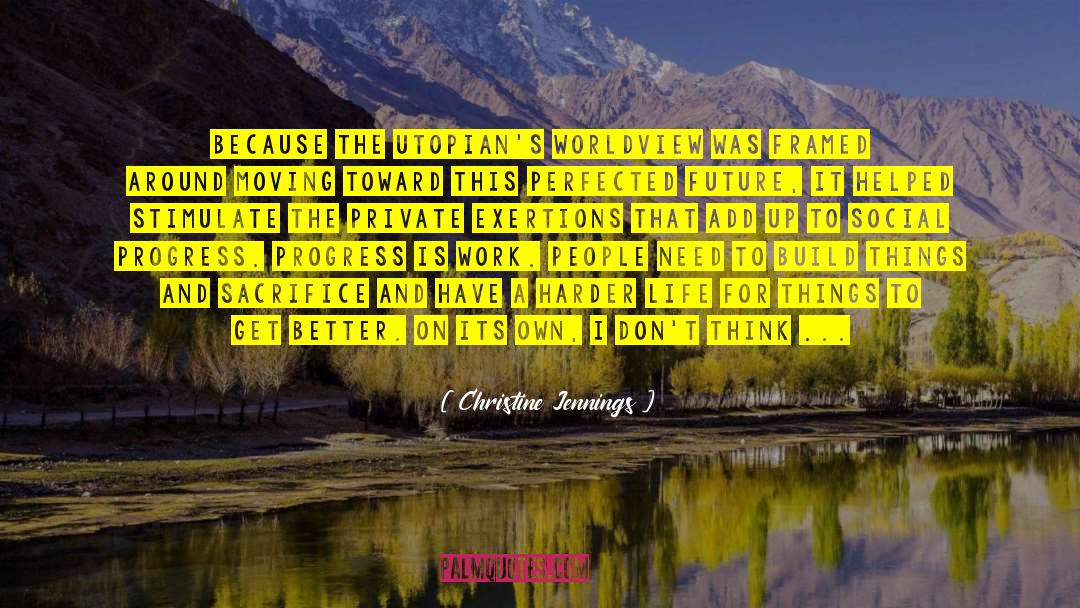
There are Harvard grads, free thinkers, feminists, abolitionists, well-to-do people who want to go write poetry and live on a farm and cook and laugh and have a good time. As they themselves described it, it was an "inward facing" community. They were focusing on making a better existence for themselves, which I think is also the driving force of 20th century communalism in the US, the thought being that the world is corrupt, and we're going to build this little garden of innocence.
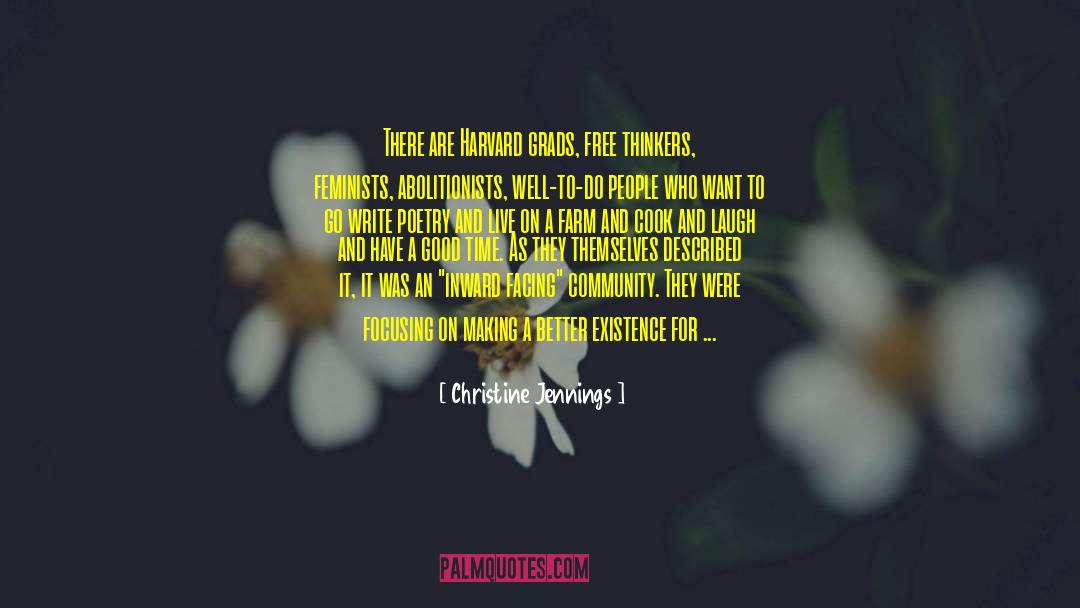
That to me was one of the most exciting, and weird puzzles of this book: how are the most religious people and the least religious people of their time all drawn to very similar visions of utopia?
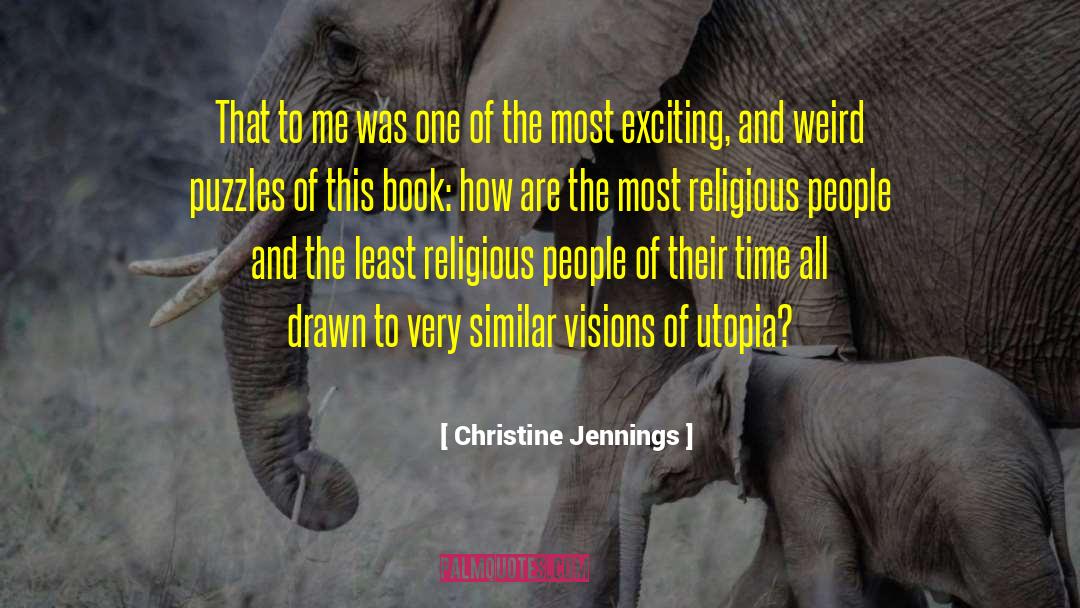
The religious and irreligious are agreeing with each other almost all the time. Their rhetoric is the same, and their plans are the same. Through slightly different interpretations, they all think the same thing is going to happen, that the Earth is going to be perfected and that humans are going to do the work of perfecting it.
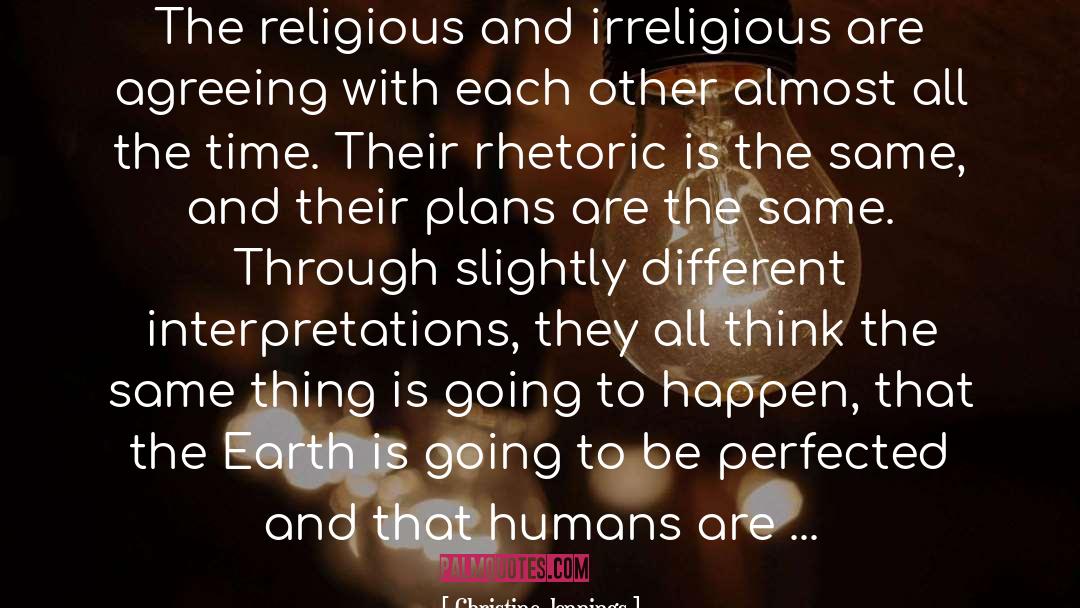
They're people who probably imagine that they would have had a better time in the past. I wouldn't imagine you'd encounter a lot of black people saying 'Oh, the '50s, that was when America was great.' It's very dangerous because the past was imperfect, and you can't go back anyway.
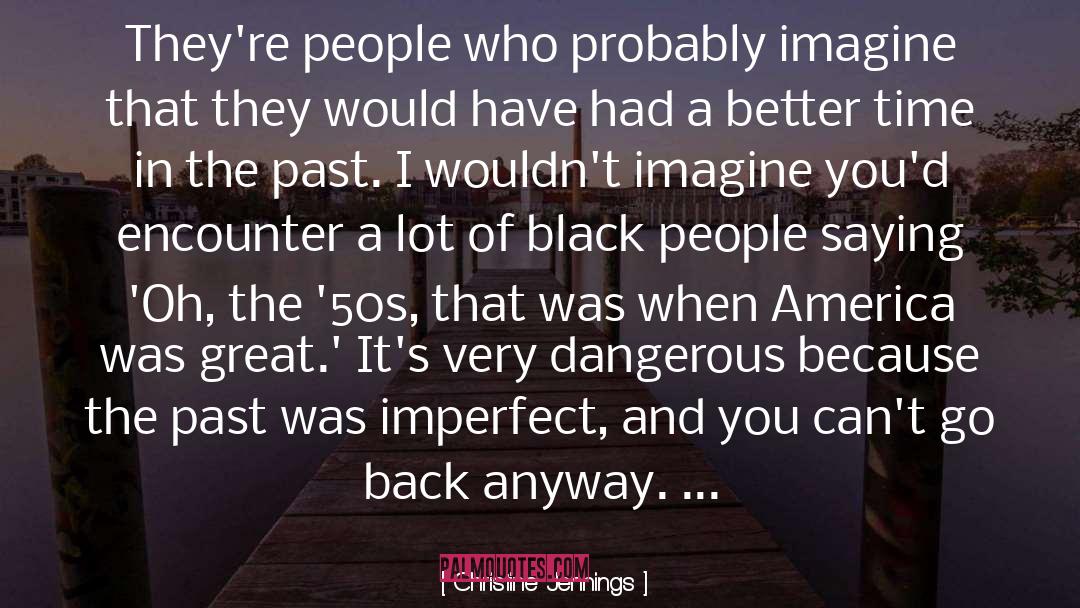
Some people just think utopians are idiots who are imagining rivers of candy and not really engaging with the world's ills, and sometimes that's surely the case, but I think that imagining the perfected society is a way of expressing your disgust with the current state of affairs.
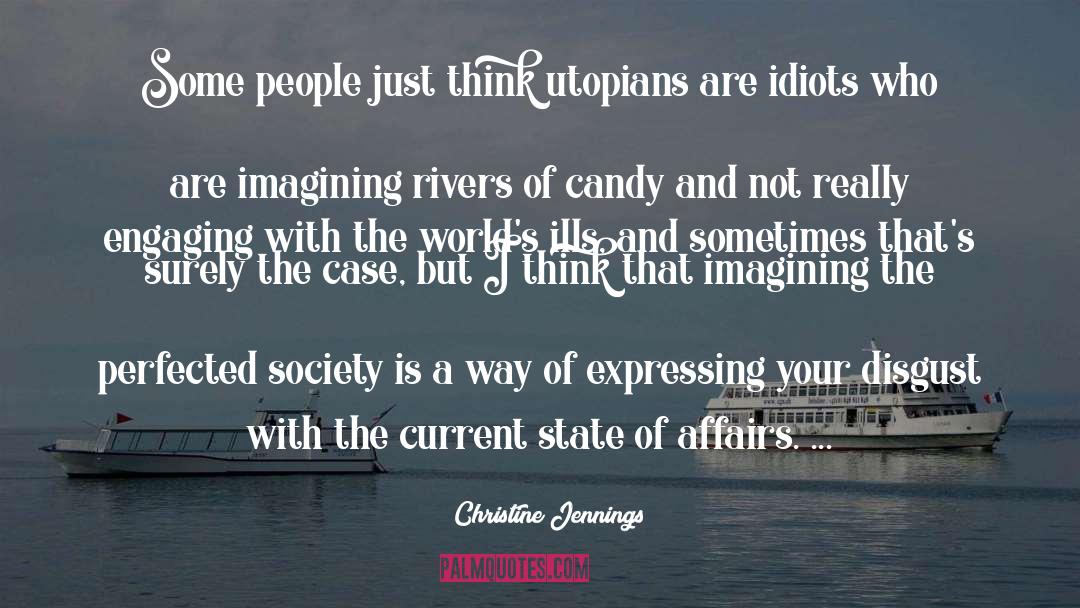
Some people think God is going to guide those humans. The Oneida community and the Shakers both believed that they had received revelations about how to build the New Jerusalem that the Bible says is coming

Margaret Fuller was already a celebrity, travelling around the world. Emerson, who was the axis around which that whole community turned, just didn't like Fourier's ideas very much. He thought it was all too rigid and programmatic. He said, "Fourier had skipped no fact but one, namely life." He thought it was an inhumane system - the day is scheduled too precisely. He didn't think it would work, and he was right.
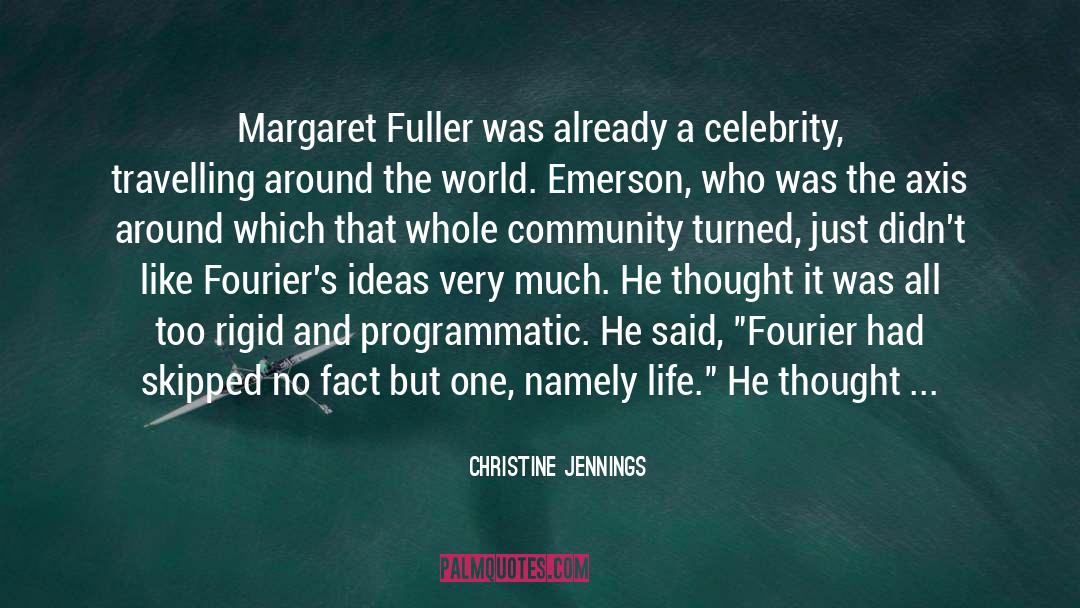
The secular utopians basically said the exact same thing, they just took the Bible out of the equation. The religious and the secular groups recognized each other as fellow travellers. They exchanged newsletters and asked each other questions like, "What's a good soup pot to use if you're making dinner for 800 people?" They had these practical connections.
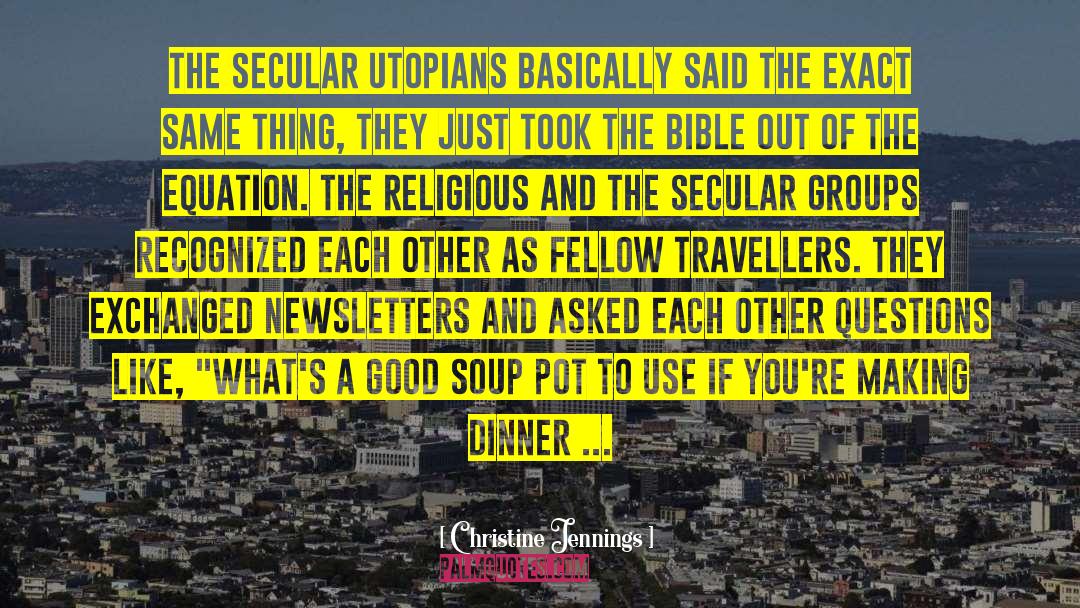
The Jacksonian era is generally talked about in terms of individualism, and the development of free market capitalism, and Victorian prudery. It was shocking to find a parallel history to that - a bunch of Americans with very different priorities. I stumbled on to these people, and then became completely fixated on them. The question that drove me was: how did these reasonable people adopt these extremely unreasonable ideas?
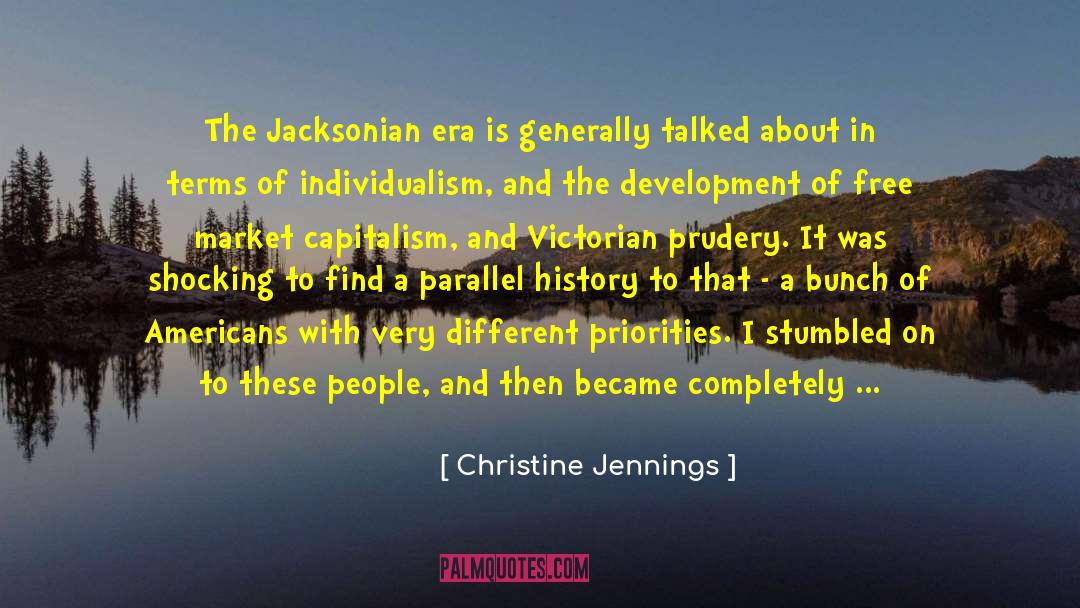
Don't think I should be in the business of making big pronouncements about where we are now, but I would say that dissatisfaction is as acute now as it was then. What's different, and what I think we can learn from these people, despite their abundant folly, is that we're not using the future as the organizing principle for our critique.
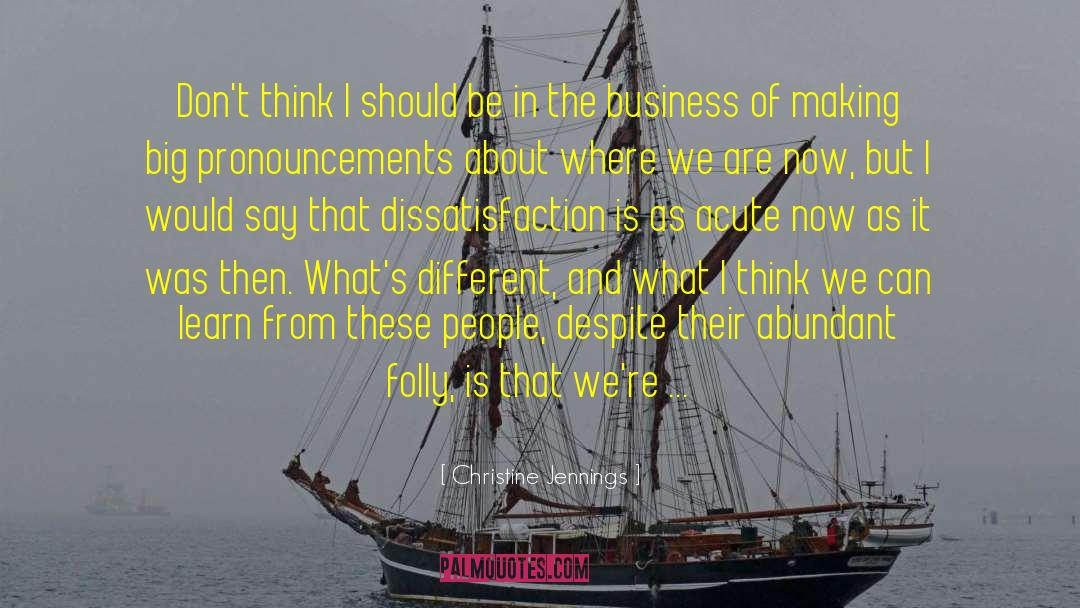
The vision shared by both [French utopian] Charles Fourier and Robert Owen was for an entire town to fit into one structure. Owen's design for what he called a "parallelogram" was essentially to have a whole city in one building, laid out around a huge quadrangle. Fourier's scheme was to build a massive Versailles-like structure that he called a "phalanstery." In both cases they had these architectural dreams that we now recognize as pretty unappealing.
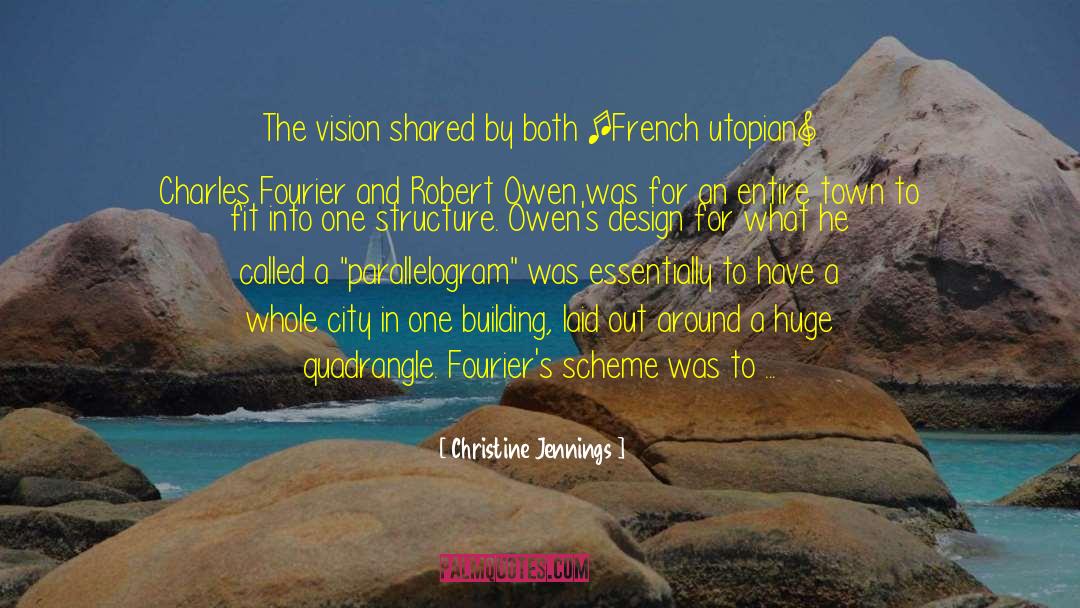
They [Oneida people] didn't want to fix problems one at a time. If someone invited them to a feminist convention, their answer would have been, 'In the new world women will have total equality, so lets spend our energy creating that whole new world.' And to their credit, the women at Oneida probably had far greater practical equality than what any of the women gathered at Seneca Falls experienced in their lifetimes.
![Christine Jennings Quotes: They [Oneida people] didn't want Christine Jennings Quotes: They [Oneida people] didn't want](https://palmquotes.com/author/christine-jennings-quotes-759633.jpg)
I was really interested in 20th century communalism and alternative communities, the boom of communes in the 60s and 70s. That led me back to the 19th century. I was shocked to find what I would describe as far more utopian ideas in the 19th century than in the 20th century. Not only were the ideas so extreme, but surprising people were adopting them.
